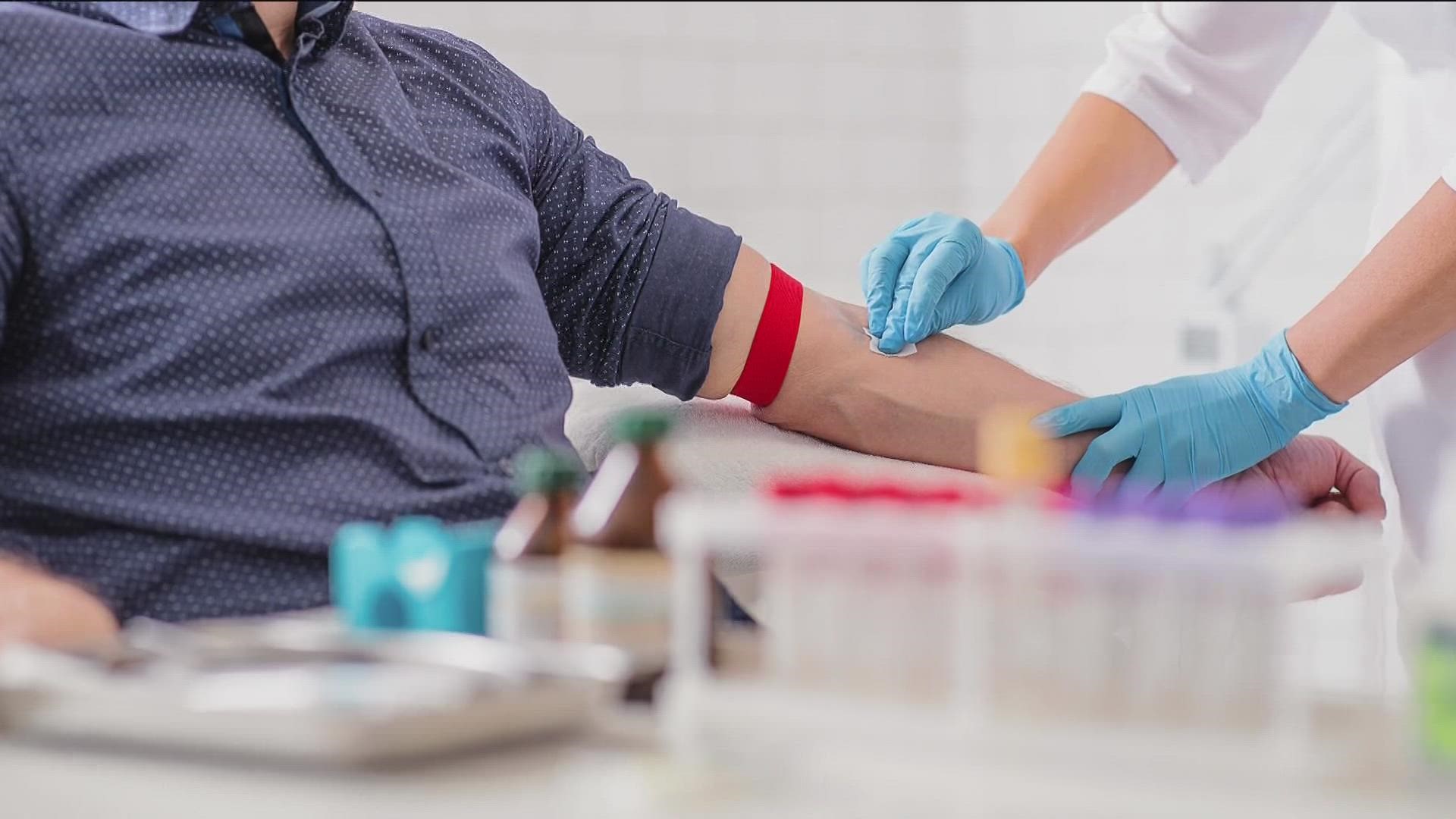ATLANTA — Many people are joining the growing call for the FDA to ease blood donor restrictions for sexually active gay and bisexual men as the American Red Cross faces its worst blood crisis in more than a decade. Atlanta is one of eight cities taking part in a federal study that could help shift the FDA’s policy.
“It was personally painful because I knew that I could not donate just because of my sexual orientation and just because I identify as a gay man," Jeff Graham said.
Graham, who's the executive director of Georgia Equality, said he donated blood when he turned 18 but hit a roadblock.
“I did donate as soon as I was of age when I was in high school, but once I hit college and came out, suddenly, because I was identified as a gay man, I could no longer donate blood," he said.
Graham was in a 32-year relationship with the man he married. His husband passed away last year.
“There are a number of gay and bisexual men who are in committed relationships, just like their heterosexual counterparts. It makes no sense to single out one specific group of people for a special policy around sexually transmitted diseases, that anyone regardless of their sexual orientation is at risk of contracting," Graham said.
In 1983, the federal government banned men who have sex with other men from donating blood at all. Since then, restrictions have been walked back, but the FDA still requires them to abstain from sex for 90 days in order to donate.
“With the advances that we've made in HIV testing, and just in the testing and treatment of blood donations, in general, there really is no need, scientifically, to have that distinction for gay and bisexual men," Steven Igarashi-Bell said, who works for the Atlanta Pride Committee.
The organization is partnering with the local Red Cross and taking part in a nationwide FDA study looking at how to change or eliminate the 90-day rule.
"The hope is in lifting the ban on men who have sex with men from being blood donors and removing some of the regulations that have been long-standing with that," Igarashi-Bell said.
Men in the study will take a brief survey, give blood, and participate in follow-up information.
“We're seeing extreme shortages in blood donation, so I think anything that we can do to lift barriers to donation and increase the ability for more of the population to become blood donors moves us in the right direction," Igarashi-Bell said.
The Atlanta Pride Committee is seeking 200 gay or bisexual men in metro Atlanta to take part in the study, but only about 50 have signed up.
"We're confident that when more people are aware that this study is going on, and that there's an ability for them to help change this regulation for the better, I think more men will come out to be involved with it," Igarashi-Bell said.
The study is called Assessing Donor Variability And New Concepts in Eligibility, or ADVANCE, and researchers are looking for gay and bisexual men ages 18 to 39 who have had sex with men in the past three months to take part.
"I just want to encourage everyone to share it. If you don't fit the criteria, share it with a friend or a family member because I think that we have a unique historical space right now to really affect change for the whole community," Igarashi-Bell said.
Participants will be compensated for their time. Anyone interested can sign up by clicking here or calling (888) 689-0001.

